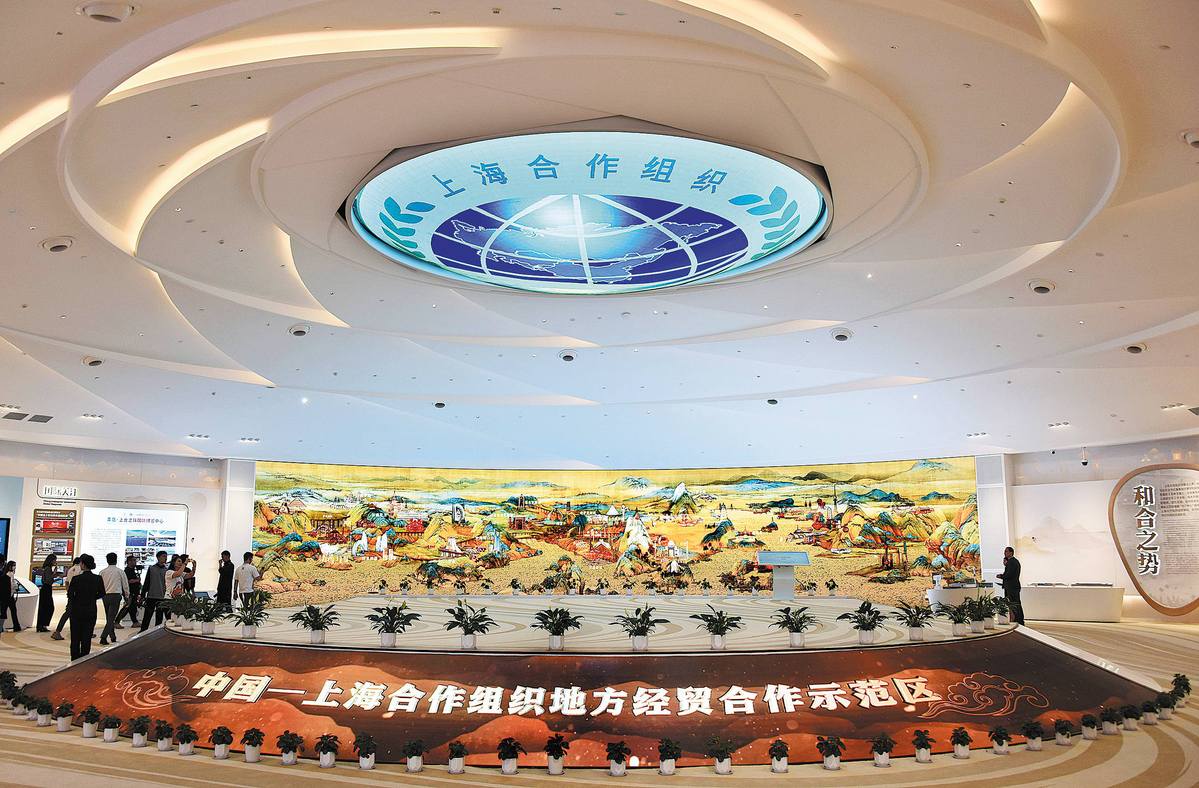[ad_1]

SCODA aids in increasing trade volume between Qingdao, SCO member countries to 87.36 bln yuan in 2022
SCODA has enhanced its role as a logistics hub, and created multilateral economic and trade partnership platforms to facilitate two-way investment ties, business travel and cultural exchanges among member countries of the Shanghai Cooperation Organization, officials said.
SCODA stands for the China-Shanghai Cooperation Organization Local Economic and Trade Cooperation Demonstration Area.
President Xi Jinping said in June 2018 during the 18th meeting of the council of heads of member states of the SCO that the government supports the building of a demonstration area in Qingdao, Shandong province, for China-SCO local economic and trade cooperation.
“Local economic and trade cooperation is the fundamental mission of building the demonstration area, and must be firmly pursued,” said Zhang Xinzhu, a member of the Standing Committee of the CPC Qingdao Municipal Committee and secretary of SCODA”s Party working committee. “Only by expanding, strengthening and improving the quantity and quality of trade can we provide the foundation for cooperation and solid support for serving China’s opening-up.”
The demonstration area has opened 31 regular international train routes, connecting 54 cities in 23 countries in the SCO or those involved in the Belt and Road Initiative.
The area has attracted more than 2,000 trade entities, increasing the trade volume between Qingdao and SCO countries from 36.13 billion yuan ($5 billion) in 2018 to 87.36 billion yuan in 2022, with an average annual growth of 24.2 percent.
Led by SCODA, Shandong achieved a trade volume of 162.3 billion yuan with SCO countries in the first five months of this year, an increase of 57.3 percent over the same period last year, according to statistics from the Qingdao Customs authority.
In 2022, the container throughput of the area reached 279,000 twenty-foot equivalent units, an increase of 5.4 percent year-on-year.
On May 12, a China-Europe freight train carrying 150 domestically manufactured vehicles left the demonstration area’s multimodal transport center for Horgos Port in the Xinjiang Uygur autonomous region, to its destination in Tashkent, capital of Uzbekistan. It was the first China-Europe freight train from SCODA carrying complete vehicles, although the route opened as early as 2018 and has so far made more than 1,000 trips.
The demonstration area has built a comprehensive public service platform for multimodal transport, enabling data coordination and one-stop information services for railways, seaports, airports, land ports, Customs, government affairs and other authorities, and providing logistics support for multilateral economic and trade cooperation within the SCO, said Zang Yuanqi, an official at the administrative committee responsible for industrial development.
Lu Junlin, who had spent many years in Zhejiang province doing cross-border e-business, started a company in the demonstration area in June 2021. He said it was the logistics and trade facilitation brought about by innovation that pushed him to start the business.
“It used to take 55 to 60 days for the goods to be shipped to Russia, but now it takes only 15 days using the China-Europe freight train from the multimodal transport center of the demonstration area,” he said. “At the same time, in the area’s cross-border e-commerce supervision center, more than 50 declaration items can be reduced thanks to its streamlined declaration mode, making cross-border e-commerce more convenient.”
The company’s business “grew rapidly, with export value reaching more than $61 million last year”, Lu said.
[ad_2]
Source link
